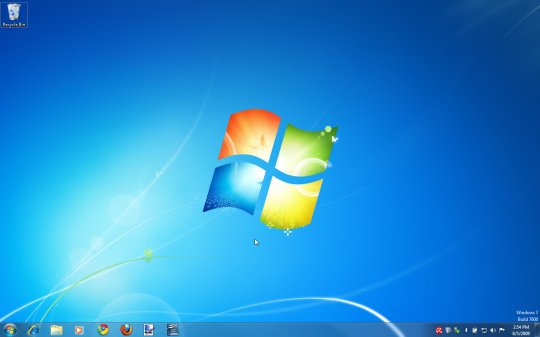Windows 8: Ready in 2012?

But Microsoft's next desktop OS will be born into a different world than Windows 7...
Most organisations are only getting to grips with their Windows 7 deployments now - but speculation has already started about when Microsoft's follow up - Windows 8 - will appear, after a post on Microsoft's Dutch website said it will be about two years before the new operating system emerges.
And while Microsoft has refused to comment on what was posted on the Dutch website, Clive Longbottom, service director at analyst house Quocirca, believes the company will release Windows 7's successor around that time.
"It's two years off, so I would say that Microsoft has to do something by then to fight off the newcomers - which will not just be [Google's] Chrome but will also be HP with its rebirth of Palm," Longbottom said.
Longbottom said he expects to see an alpha version of Windows 8 by the middle of 2011, with a public beta emerging at the beginning of 2012.
But Dale Vile, managing director of analyst house Freeform Dynamics, warned that the world is likely to be "quite a different place" by 2012. He said the increasing number of devices through which users access applications and services will mean the independence of data and applications from devices will become more important: the user will become the pivot point for service delivery rather than the devices, according to Vile.

Speculation is already hotting up about Windows 8, Microsoft's follow-up to Windows 7 (above)
(Screenshot: Seth Rosenblatt/CNET)
"The current Windows and Mac models (that are pretty much identical in terms of device-centric philosophy and functionality) are fundamentally not sustainable in the future - it all has to become much more open and interoperable," Vile told silicon.com.
Quocirca's Longbottom envisages that Windows 8 will be modularised, with different versions for different devices - be it mobile handsets, tablet PC, laptops and desktops.
"[Windows 8] should be able to be very thin (as primarily an access device), medium weight (enabling some part of an application to run at the device itself, while utilising cloud-based services for other items) or a thick, fully functional OS, where everything can be run from the device itself," he said.
Longbottom predicted Microsoft will offer a cloud version of Windows 8 but added that Microsoft's main method of distributing Windows 8 will be to install the OS on consumer devices.
Windows 7 has been available for a year and Microsoft recently announced that 240 million licences for the operating system have been sold to date.
Businesses are now looking seriously at moving to Windows 7 although application incompatibility has been cited as an issue that has delayed rollout programmes.